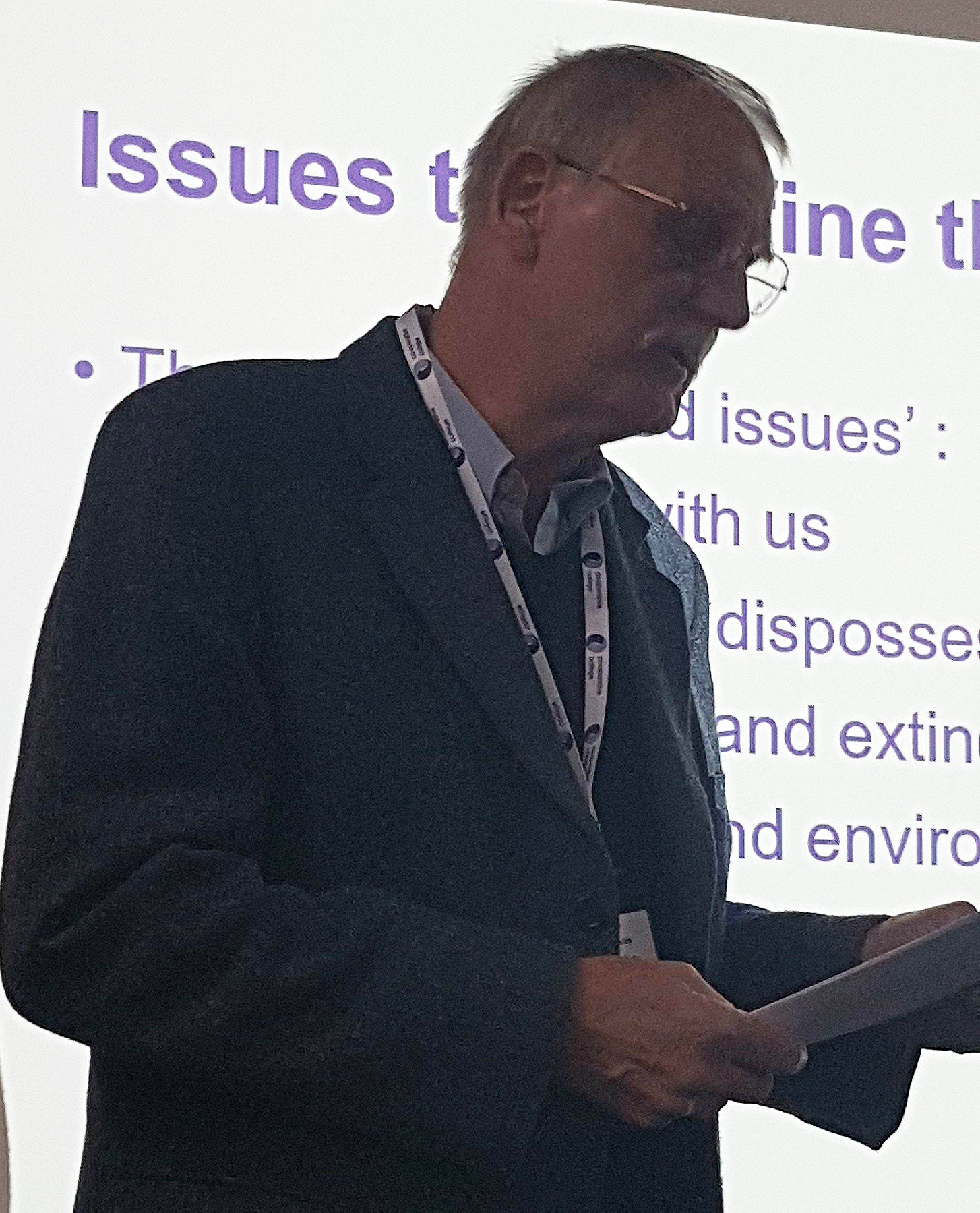A session at the Co-operative Education Conference looked at proposals to create a co-operative university in the UK.
Professor David Davies presented a paper he wrote with fellow academic Prof James Nyland, Critical Thinking for an Engaged University, and addressed the question of why a co-operative university was needed now, when there were already so many people attending university.
He told delegates at the Manchester event that the world was still marked by inequality and led by an unaccountable elite.
“Poorer people are dispossessed,” he said. “Richer people aren’t dispossessed – they seem to have more.”
And in these troubled times, the notion of community, “a bedrock of co-operation” was being questioned and challenged, he warned, with the rising prominence of issues of identity, race, nationalism and belonging.
“What do we do when we’re no longer quite the same in a community?” he asked. “Our society is increasingly composed of different groups, often fragmented, often alienated from one another.”
But he said there was a longing for community, which meant there was a need “to build on social capital as a basis for learning”.
“We need valid knowledge about issues facing communities and people,” said Prof Davies. “How do we get this?”
He said new ideas in education were needed to help:
- the world’s poorest who are receiving a shrinking share of the world’s wealth, suffering more from climate change and being forced into driving migration – and who cannot afford the education they need
- workers needing to reskill in a globalised, digitalised economy
- people, especially the young, whose lives were digitally dependent in a world where “knowledge has exploded into availability but the platforms are held by a minority of companies”.

He said these new uncertainties meant universities would have to address the controversial questions of belonging in a nationhood. And there is also a need for more critical thinking about the content and processes of learning.
Addressing the major question of who a co-operative university should be designed for, Prof Davis said it should be aimed at those who wouldn’t have had a chance for a university education, and who need the skills which can help them change their lives.
“I hope a co-op university would be the genuine people’s university,” he said.
Dr Joss Winn from the University of Lincoln also addressed the question of why a co-operative university should come now, and argued it was a response to decades of educational reform which had corporatised universities and handed control to vice chancellors and their teams.
“There is a growing demand from students and academics for democratic control of universities,” he said, pointing to a substantial number of student occupations demanding this.
“The model pushed on universities in last 40 years, we know it’s not working… we need a different form of governance for higher education.”
But he said the multi-stakeholder model of co-operative governance was the only one which suits a university, and this model has only emerged since 2010. “It’s very recent but we have one now.”
Dr Winn said a co-op university could help foster a new co-operativism, which was n tune with the needs of today’s social solidarity model and community-based organisations.
He warned that such an organisation could not be truly autonomous: it would have to work inside the regulatory framework so its students could access funding – but argued it could deal with the regulator and act as “a buffer, allowing autonomous co-ops to deliver the curricula they want, at arm’s length”.

